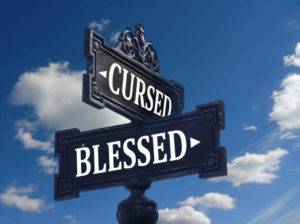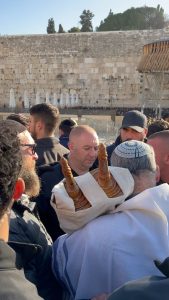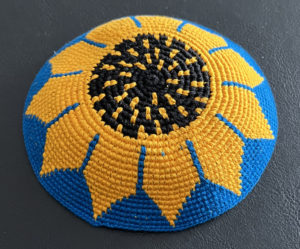The Mask and Wig Society at Penn offers an understanding of Context in the spirit of Tom Lehrer.
The Mask and Wig Society at Penn offers an understanding of Context in the spirit of Tom Lehrer.
The situation is fluid, and things are different from what we thought. We have come to an inflection point, and what happens next depends entirely on how boldly we are willing to consider acting.

It is relatively easy to kill people but almost impossible to kill an idea. Hamas has shown it knows no limit to the extent it will go to achieve the dual goals of killing Jews and eliminating Israel.
Israel thought it could manage the situation, lulling Hamas through what are essentially bribes and occasionally “mowing the lawn,” that obscene notion that periodically Israel engages in a military action to repress the militants. This is similar to blowing on the boiling pot of pasta to keep it from boiling over.
The pot boiled over, and the ensuing pogrom was devastating.
Furthermore, Hamas retains substantial control. The delay in releasing hostages on Day 2 of the truce showed their continued capacity to manage the situation psychologically. Equally distressing was the celebration in the West Bank because the jubilant welcome home to the released prisoners was met with Hamas flags instead of only Palestinian flags. A weak Palestinian Authority is losing control, and Hamas is ascendant.
And an uncontrolled group of Jewish right-wing extremists is engaging in violence against Palestinians that could only be understood as ethnic cleansing of the territory.
The situation is dire and requires bold action.
Strangely, a scene from The Godfather movie keeps running in my mind. As Don Corleone grieves his murdered son, he looks up and, from the depth of his pain, declares the killing has to stop. Peace is required even though vengeance courses through the blood. For us, this is that moment.
The killing must stop. Recognition by each side is required, and we must forge a way forward. Is Israel able to do this, and if so, who is courageous enough to make that declaration and commitment?
We’ve learned that ignoring the other side and building walls is not a solution. Walls cannot be high enough or thick enough to provide security. We also cannot do it alone.
Many are vested in maintaining the status quo of hostility, hatred, and turmoil. But others have a clear interest in seeing peace in the region. These nations need to join in the effort to work with Palestinians and Israelis to build trust and an infrastructure of hope. Together, we can realize a vision of dignity and security for both people who claim a right to the region. And those who envision a future for their children to live in a world without violence must be convinced we are all committed to their future. Building trust out of the rubble of destruction and pain that now exists will take time. But now is the time to start.
The killing must end, and now is the time to start on a path forward.
The death and destruction of war are terrible, and it has never spared civilians. It cannot. The objective is to defeat the enemy, and that is done by breaking things and killing people.
The victims are innocent civilians, and the people in the hospital in Gaza are among them. Everyone bears responsibility regardless of who fired the missile that caused the bloodbath. This kind of tragedy will continue to happen as long as the war lasts.
As terrible as war is, moral wars need to be fought when you face an existential threat. Hamas has proven that it is an existential threat to Israel and, therefore, must be eradicated.
For anyone needing proof of their barbarity beyond the vicious brutality unleashed on Israeli civilians, look no further than the keeping of the hostages. These hostages include the 200 kidnapped from Israel but also the civilian population of Gaza trying to flee the carnage. They have not permitted humanitarian aid into Gaza, and what little has gotten in has been stolen.
Hamas must be eliminated. There is no choice.
It is time for all nations to find a way towards peace in the region. Egypt, Jordan, and Saudi must join the United States and others to create a new Marshall Plan to rebuild in the aftermath of war, providing physical and governmental infrastructure to finally give the Palestinians the opportunity to live in peace and security alongside a safe and secure Israel. Whoever cares for the region’s people must come to the table and start the work.
Every decent person is appalled by the loss of human life.
We pray for peace.
Within this parsha lies an extraordinary verse. As you will recall, Miriam contracted leprosy and was consigned outside the camp until she recovered. This comes on the heels of what Moses could see as a betrayal of him by Miriam, challenging his authority as the leader of the people. However, putting aside personal hurt, Moses prays to God for her recovery, saying, “El nah refanah lah. Please, God, heal her.” Moses teaches us to embrace our humanity and our need for human relationships, not mired in anger, but to replace retribution with reconciliation and to do the right thing.
In the words of the modern prophet Ted Lasso in response to Nate’s return as the prodigal son, “I hope that either all of us, or none of us, are judged by the actions of our weakest moments, but rather, by the strength we show when and if we are ever given a second chance.”
May their words serve as lessons for us to be better, more deeply human, and connected.
As we celebrate receiving Torah on Shavuot, Redemption Song sung by Stephen Marley helps us prepare for this Shabbat with the hope of unity and peace.
Shabbat Shalom
Love (with)… all your perfect imperfections
John Legend’s beautiful song All of me, inspired by his love for his wife, Chrissy, moved and inspired many of us with the romance. But what happens when reality falls so far short of the romantic vision, pushing the boundaries of acceptable, even tolerable? Unfortunately, divorce is often the result.
I am struggling with my relationship with Israel. The aspirations of our ancient homeland land and our history drew me to the miracle that was and, in many ways, continues to be this place. But the state is pressing on issues such as racism, tolerance for pluralism, and checks and balances in government. I was suckled in a mythic Israel but have learned to ween myself, given the practicalities of a nation-state that cannot live solely by the hopes and dreams of the Jewish people. However, as Ben Gurion understood, to be a nation like other nations. It was a pragmatic understanding of survival in the harsh real world. Today, the ideals of a homeland that is both Jewish and a democracy are threatened by raw political power and expediency.
We had come to accept Jewish and Democracy in tension. But, for the first time, we face the existential crisis of threatening both. The fractious rough and tumble nature of Israeli politics and the need to form a governing coalition in Knesset has brought us to a new place.
Over time, we developed complacency in our attitudes. Israel, as a Jewish Democratic state, was always considered a given. Laws and policies often were merely annoyances and opportunities for workarounds. “Religious” marriage meant a weekend in Cyprus. The orthodox church that has become the Kotel was not an issue for the secular. Israelis have enjoyed unprecedented prosperity and unrivaled military strength, making this a safe and secure place for most. Palestinian rights, west bank settlements, and civil rights were not on the radar screen of most and were relegated to the margins.
Then came Bibi 3.0. The assault on cherished rights, once considered unassailable, has awoken many from slumber. The protests in the streets by hundreds of thousands are sending a strong message that this is unacceptable. “Guns and butter” at any cost are not enough. The extensive unbridled settlement program is intolerable, and the Israeli terrorist response to terrorism is rightly called a pogrom. To use a familiar Jewish word, it is a Shanda.
 I struggle to love the country as I continue to love the land that held a people charged to be a light unto the nations. This is my heritage. Last week during my trip to Israel with the CCAR, I was proud to be at two demonstrations in Jerusalem and Tel Aviv. I was deeply moved to see the sea of Israeli flags and patriotism on display. However, I was disgusted and deeply aggrieved to be spat on when attempting to bring our Torah for Rosh Chodesh and assaulted by yeshiva bochers as trying to stop my expression of Judaism in the Kotel space.
I struggle to love the country as I continue to love the land that held a people charged to be a light unto the nations. This is my heritage. Last week during my trip to Israel with the CCAR, I was proud to be at two demonstrations in Jerusalem and Tel Aviv. I was deeply moved to see the sea of Israeli flags and patriotism on display. However, I was disgusted and deeply aggrieved to be spat on when attempting to bring our Torah for Rosh Chodesh and assaulted by yeshiva bochers as trying to stop my expression of Judaism in the Kotel space.
I cannot turn my back on this precocious and precarious experiment. But I am distraught. I support those who do the work, including the Israeli Religious Action Center and the brave Women of the Wall. I also proudly support NGOs who envision a place where people can live in a shared society, including the Yad b’Yad schools and the New Israel Fund, on whose regional board I serve. I am actively considering dual citizenship, not to lessen my devotion to the United States, but to achieve a voice in shaping the destiny of Israel as only a voting citizen can do. I urge everyone to evaluate where they stand and what they want to do at this critical juncture.
No one can sit on the sidelines any longer.
Now is the time to rededicate ourselves to the cause of humanity by helping Ukrainians during this harsh winter. The Russians are brutal, targeting civilians to bring Ukraine to it’s knees.
this harsh winter. The Russians are brutal, targeting civilians to bring Ukraine to it’s knees.
Please help by donating what you can to the relief efforts.
Donate here and receive a Kippah to proudly display, like the Menorah in the window, that you #StandWithUkraine. www.RabbiDavidLevin.com/Kippah.
Chag Urim Sameach!
Set at the Shoes along the Danube Bank, the Hungarian Sabbathsong Klezmer Band shares “Sh’ma Yisrael.”
Shabbat Shalom
When the heart cries, only God hears it
The pain rips from my soul
A sigh breaks the silence
And you fall on your knees while you pray
R: Hear, O Israel, O Lord Almighty
I thank you for my life, I thank you for everything
The mouth moves silently, but my spirit cries out
My heart cries silently, and I pray for you
Hear, O Israel, O Lord, do not let me fear now
(Behold) the guardian of Israel does not slumber, he does not sleep
The pain is great, but I can’t run away
Because I don’t even have the strength to speak, now I need a miracle.
I am deeply grateful to bear witness to the important stories coming from my mission to the JCC of Krakow in support of Poland and Ukraine and to bear witness.
 Thank you to Rabbi Jeremy Weisblatt of Temple Ohav Shalom in Allison Park outside Pittsburgh and to Rabbi David Ackerman of Beth Am Israel of Penn Valley, PA outside Philadelphia for graciously opening your shuls to me.
Thank you to Rabbi Jeremy Weisblatt of Temple Ohav Shalom in Allison Park outside Pittsburgh and to Rabbi David Ackerman of Beth Am Israel of Penn Valley, PA outside Philadelphia for graciously opening your shuls to me.
Help us help them. Please invite me to share this very Jewish and very human story with your community.